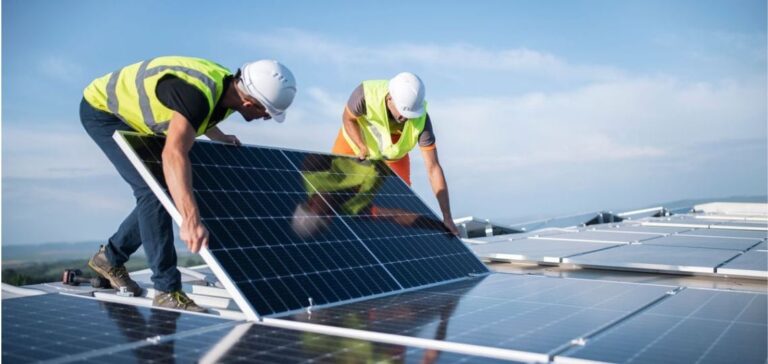By 2023, employment in the U.S. clean energy sector will increase by 4.2%, representing 142,000 new positions.
This growth stands out for its pace, higher than that of the job market as a whole, which stands at 2%.
Public and private investment, encouraged by policies such as the CHIPS Act and the Inflation Reduction Act, is boosting this strategic sector, particularly in wind power, solar power and energy storage.
The solar industry, although affected by tariff adjustments in California and rising interest rates, is making a significant contribution to this growth, with over 18,000 new jobs.
These figures illustrate the sector’s resilience in the face of economic fluctuations.
Impact of public policies and sectoral reallocation
Federal public policies, particularly recent legislation, are playing a key role in structuring the clean energy job market.
They not only encourage job creation, but also a gradual reallocation of human resources within the energy sector.
The unionization rate in clean energy will reach 12.4% in 2023, a historic first, surpassing that of the sector as a whole.
This reallocation is also reflected in a decline in the oil and coal sectors, where employment is down by 6% and 5.3% respectively.
At the same time, the natural gas segment recorded significant growth of 13.3%, underlining changing energy priorities.
Workforce trends and inclusion challenges
The composition of the workforce in the energy industry remains a central issue.
In 2023, 73% of positions will still be occupied by men, reflecting stagnation compared to the previous year.
The share of women in new hires, which reached almost 50% in 2022, will fall to 17% in 2023.
This finding highlights the continuing challenges of inclusion and diversity in a sector undergoing major transformation.
The ongoing energy transition requires continuous adaptation of the workforce, both technically and demographically.
Efforts to diversify skills and profiles within the industry therefore remain crucial to support its sustainable growth.






















